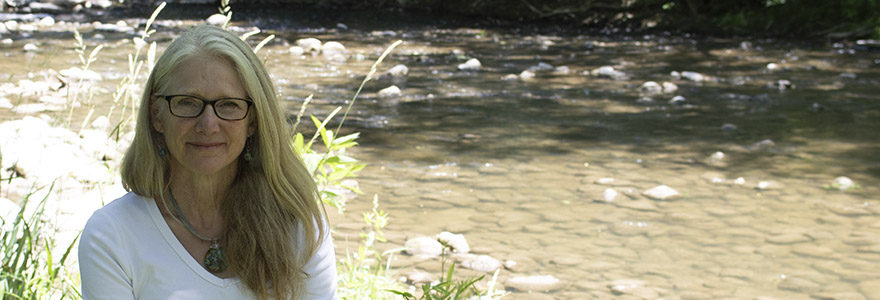News and Updates
Contact
Faculty of Social Science
Social Science Centre
Room 9438
Western University
T. 519-661-2053
F. 519-661-3868
E. social-science@uwo.ca
Funding will bring new perspectives and audiences to climate change course
June 17, 2021
Story by Rob Rombouts
Katrina Moser aims to bring new perspectives and new audiences to her course on climate change with support and funding from two programs.
Moser, a professor in the Department of Geography and Environment, has received a Teaching Fellowship from the Centre for Teaching and Learning and a Digital Content grant through the eCampusOntario Virtual Learning Strategy. Through these supports, Moser is re-designing the course with Sara Mai Chitty (Curriculum & Pedagogy Advisor, Office of Indigenous Initiatives) and Dr. Beth Hundey (eLearning & Curriculum Specialist, CTL). The course, Connecting for Climate Change Action, will expand beyond teaching students about the science of climate change, to focus on taking action to address it. Critical to the success of the course will be the integration of Indigenous and Western science. By sharing both Indigenous and Western perspectives on climate change, the team hopes to create an educated, informed and engaged population.
During the course, students calculate their carbon footprint and are encouraged to think about how they can reduce it in the most impactful way. The students then commit to taking these actions for three weeks. Although these changes are limited to 21 days, Moser wants to track and measure how students act, a year after completing the course.
“My hope is that students continue to think about what they learned and take that learning into their future roles and jobs to help their future employers change how they act,” said Moser.
Through the eCampusOntario initiative Moser and her colleagues will develop eight modules that can be delivered online and will be made available for other Western departments, Ontario universities, colleges, hopefully beyond. “When a course is online, you can reach out to people from across Canada and around the world and ask them to be involved,” she said.
Bringing in other voices can help highlight the global impact of climate change, said Moser. “If you live in the Arctic, you’ve seen climate change happen, or you have felt the effects of it; maybe it will make it more real for people in southern Ontario.”
The course re-design will occur at the same time as the Department of Geography & Environment launches their new major in Climate Change and Society. Moser’s course will be “a starting block and other courses will allow students to dive deeper into the societal shifts needed to address climate change,” she said.
With the changes, and the wider audience, Moser hopes to highlight how climate change will impact everyone, and what we must do about it.
“Most Canadians don’t think climate change will affect them, and they are reluctant to make changes in their lifestyle,” said Moser. “When I talk to students, one of the things they struggle with is not knowing what to do, and how to make the changes they want for a better world and future; that can be paralysing in a way.” Moser and her team hope to change that with their new course.

